
This Show Must Go On
One theatre company’s big idea to save the world: teach kids how to be environmental superheroes
The post The Politics and Practices of a Feminist Entrepreneur appeared first on LiisBeth.
]]>The post The Politics and Practices of a Feminist Entrepreneur appeared first on LiisBeth.
]]>The post How Do We Remake The World? appeared first on LiisBeth.
]]>The post How Do We Remake The World? appeared first on LiisBeth.
]]>The post Welcome to the Commons: Meet the First Feminist in Residence appeared first on LiisBeth.
]]>
What the heck is FEC, you ask? And what can a Feminist in Residence offer you?
Exciting opportunities, friends, in challenging times.
First, the Feminist Enterprise Commons (FEC), invites feminist changemaking champions (that’s you!) to connect with other visionaries, entrepreneurs, innovators, creators, investors, researchers and social justice activists in what we believe is the world’s first feminist enterprise-oriented network. Powered by LiisBeth Media and hosted on Mighty Networks (founded by a woman), the Commons will bring together the far-flung, splintered international feminist enterprise community to extra-strengthen the feminist economy and advance feminist practices – by learning and sharing strategies, deepening knowledge, creating support systems, and resourcing and sourcing from each other.
Second, though another first in an online network, the Commons will be animated by a rotating series of Feminists in Residence, international thought leaders who will guide members in learning, exploring and advancing various aspects of feminism – business entrepreneurial feminism, ecofeminism, cyber feminism, Indigenous feminism and on and on!
LiisBeth is pleased to introduce CV Harquail as the first Feminist in Residence. The author of Feminism: A Key Idea for Business and Society describes herself as a former business-school professor turned “putting-theory-into-practice toolmaker.” For the month of January, she will engage in the Commons, sparking conversation, answering your questions and sharing research and insights on feminist business practices and values.
During her years as a business school professor, Harquail says she was often the only one using the word “feminism” in business and drawing on the rich body of knowledge that feminism has created over the past 200 years. “One of the beautiful things about LiisBeth and this new Commons is that it’s a space where all of us working on these things can come together. It emboldens me, knowing I’m not alone, that there are others working on this and may have answers to questions I didn’t even know to raise. That’s a unique thing, creating this space to make things happen for each other.”
As well as “hanging out” in the Commons space, Harquail will also lead a four-week integrative course (webmeeting combined with online questions and conversation) on feminist business practice and values – and how integrating them can help you, your enterprise and the world flourish. Week one will be an introduction to feminism for business; week two will look at defining a feminist business; week three will explore feminist business values; and the final week will compare feminist and conventional business perspectives.
Harquail intends the course to provide a foundation for further exploration with future Feminists in Residents, and support members who want to make a deliberate effort to learn new ideas. “What excites me is the opportunity to be a catalyst, to trigger and facilitate conversations that people want to have. We wouldn’t try to teach ourselves calculus with just a textbook. The Commons provides a lot of ways to learn about feminist practices – through formal instruction, experimenting, experience, discussion, disagreement, peer-to-peer sharing. This is a way for people to connect with people who are subject-matter experts, to accelerate their own learning.”
Harquail says her area of expertise – business – has long had an adversarial relationship with feminism but she soon realized at business school just how much business needs feminism – and vice versa. “We think democracy and government structure our lives but it’s business and corporations and the marketplace that really have the power. Business is what runs our world and if we want to change the world then we need to be involved in business and in changing business.”
And Harquail believes that feminism is key to helping business solve its most dire problems. “Business has been flailing around for years, trying to solve some pretty chronic problems. Failure to innovate. Lack of employee engagement. Externalizing environmental costs. Work-life imbalance. All this can be traced back to a common notion that it’s okay for some to have disproportionate power over others. But we can provide in ways that don’t depend on that dynamic. Feminism explores ways to do that.”
Helping animate the Feminist Enterprise Commons will be LiisBeth founder and publisher PK Mutch, a leading thinker and practitioner of entrepreneurial feminism. Her vision is to bring the power and resources of entrepreneurial feminism together in one constructive space – optimistic, forward thinking, fun, creative – and empower a robust network of changemakers to help each other create stronger enterprises and a better world. As many entrepreneurs know, you are only as strong as your network. Mutch intends this network to be feminist in every way – participative, caring, inclusive, understanding, responsive, inspiring, and surveillance free!
Drop into the Feminist Enterprise Commons (click here) and check it out. The first three months are free. If you have ideas for building the Commons and making it responsive to your needs, post your thoughts on the message board.
Get to know the first Feminist in Residence by reading this complimentary excerpt, “Challenging Business’s Magic Circle” from CV Harquail’s book, Feminism: A Key Idea for Business and Society.
You can enroll in CV Harquail’s course on feminist business practises and values here.
Creating researched and inspirational content to support and advocate for feminist changemaking takes hundreds of hours each month. If you find value and nourishment here, please consider becoming a donor subscriber or patron at a level of your choosing. Priced between a cup of coffee or one take out salad per month.
Support LiisBeth
Related Reading
https://www.liisbeth.com/2017/08/17/uber-feminist-enterprise/
https://www.liisbeth.com/2016/10/12/feminist-entrepreneurship-changing-the-face-of-capitalism-one-enterprise-at-a-time/
The post Welcome to the Commons: Meet the First Feminist in Residence appeared first on LiisBeth.
]]>The post LIISBETH DISPATCH #54 appeared first on LiisBeth.
]]>
Athelstan Spilhaus Comic Strip, Illustrator: Gene Fawcett
PK’S VIEWPOINT
On a hot summer July evening, a few members of the LiisBeth team (Lana, Geraldine, Champagne) and I went to see a screening of The Experimental City, a 2017 documentary about the Minnesota Experimental City (MXC) project.
The MXC was a 1960s technology-led city-building project that sought to solve urban problems of the day (excessive waste, pollution, automobile congestion, lack of parks) by building a full-size Jetsons city on appropriated land from scratch, using the latest technology sourced from around the world.
Its lead visionary—engineer, futurist, comic strip author, and dean of the University of Minnesota’s Institute of Technology Athelstan Spilhaus—imagined a city with underground garbage recycling, lots of open parks, wilderness and farms, automatic highways, moving sidewalks, and waterless toilets. Fuelled by enthusiasm for the possibilities, a cadre of like-minded engineers, designers including geodesic dome inventor Buckminster Fuller, a newspaper publisher, futurists, politicians, and corporate leaders all decided take the techtopian idea from comic to concrete.
Despite years and significant spending on designs, plans, and site scouting, in the end the project never put a single shovel—or tree—in the ground.
We were interested in learning about the MXC because we are in the midst of planning our September 29 Feminist City Walk and Talk, an event dedicated to examining feminist approaches to city building.
Turns out watching the film was time well spent on several levels. The MXC story is not only a cautionary tale about techtopian projects in general. It is also a story about the limitations of patriarchal leadership styles.
When Product Trumps Process
The MXC plan was envisioned as an innovation experiment. Its unproven ideas girded by emerging technologies required a 60,000-square-foot sandbox and 250,000 real people living its experience in order to try things out, iterate, and try again until market-ready scale-up versions could be implemented elsewhere—for a handsome sum.
MXC was, essentially, a minimum viable product. Its citizens (in this case) were early-stage adopters. The play? To create new jobs and wealth for Minnesota by selling the experiment’s spinoff products and intellectual property (IP) that would arise out of the project. Partners and advocates included federal and state governments, the University of Minnesota, and the 3M corporation. The project’s all-male leaders were able to raise $250,000 from the US federal government and $670,000 (equivalent to $8.4 million today) from businesses to invest in the project plan.
It all sounded exciting and promising. There was just one problem: where to put it.
Eventually the group found a site—an unincorporated township in rural Minnesota with fewer than 2,500 residents (back-to-landers and rural folk). The assumption was that these residents would be pushovers and would be thrilled to see 60,000 acres of their pristine natural environment turned into a city of the future for a quarter of a million dollars. The pitch? Think of the jobs! Think of the economic development! Think of what we could learn! Think of the economic potential! Think of the profits!
By now, this top-down sell story should start to sound familiar, especially if you have been following Toronto’s Sidewalk Labs‘ (this time the study cost $50 million) city-building project spearheaded by Alphabet (Google’s parent company).
As you know, Minnesota’s Experimental City was never built. They didn’t even get close. Why? As the documentary so clearly points out, its leaders and advocates prioritized product over process. They assumed a “trust us, we got this” and “father knows best” stance that was off-putting. Most importantly, they overlooked Mary Parker Follet’s 1920s feminist management wisdom by adopting a “power over” (exert authority) approach versus “power to” (develop agency and capacity to act in others) combined with “power with” (acting as expert heroes instead of initiators and sustainers of a collective process).
They also forgot Margaret Mead’s timeless lesson: “Never doubt that a small group of thoughtful, committed citizens can change the world; indeed, it’s the only thing that ever has.” This applies not just to those with power and influence, but also to those with little else but just cause, a point of view, and determination.
And what if, as feminist management scholar CV Harquail suggests, we shifted the eye of these stormy projects from a focus on economic development to a focus on citizen care?
Today, 80 percent of North Americans and 55 percent of humanity worldwide live in cities. We need to embrace both product and process innovations to make cities livable, sustainable, and safe. However, a patriarchal, top-down, corporate sales–oriented process that puts technology and corporate interests first is unlikely to succeed.
Projects like these, which involve a complex and large set of inter-independent stakeholders, require a deep understanding of the role of power, agency, co-creation processes, and fair and equitable distribution of benefits. These are all things feminist leaders know a thing or two about.
Lana, Geraldine, Champagne and I stayed for the panel session that followed which featured accomplished tech entrepreneur and out spoken Sidewalk Labs critic Saadia Muzaffar, and Sidewalk Labs supporter, Ken Greenberg, the former Director of Urban Design and Architecture for the City Toronto, author of Toronto Reborn, and adviser to Sidewalk Labs Toronto.
Trying to keep an open mind, and putting aside the fireworks examples of mansplaining that occurred, the panel discussion only served to confirm our views.
Patriarchal leadership styles which, by the way, know no gender, is like kryptonite when it comes to complex, multi-stakeholder projects. Next time, we say we go lighter on the techno-determinists and engineers, and a little heavier on the feminist management scholars and leaders who are superstars at process.

Feminism has shifted mindsets about gender roles and made us more aware of the role that power and force of systems play in shaping our lives. But what role has feminism and feminists played in shaping our cities? Would would a feminist city look like? How would decisions and policies be made if feminist values and practices were incorporated? What would the Scotiabank Arena look like if it were designed by a feminist architect?
These are just some of the themes that will be explored during the Feminist City Walk & Talk coming up in Toronto on September 29 from 2:00PM to 5:30PM. Join Denise Pinto, expert guests, LiisBeth, and Jane’s Walk TO for this unique walk and talk on current feminist issues, city building, and alternative futures while exploring and learning about key sites where feminist history was made in Toronto.
THIS WEEK ON LIISBETH

Meet Victoria Claflin Woodhull, ca. 1866-1873, who was a feminist, serial entrepreneur, and US presidential candidate.
FIRST WOMAN TO RUN FOR PREZ
Was Hillary Clinton the first woman in the US to run for president? Nope.
That title belongs to badass suffragette leader Victoria Claflin Woodhull Martin (1838-1927). Woodhull was a serial entrepreneur, newspaper editor, Wall Street stock trader, public speaker, women’s rights reformer, and fortune teller. She had three husbands, two children (one of whom was disabled), and her feminism advocated for free love and socialism.
What can feminist entrepreneurs and aspiring women-identified politicians learn from Woodhull? Turns out, a lot.
This month on LiisBeth, check out new contributor Stephanie Newman’s truly fascinating piece on Woodhull from an entrepreneur’s perspective.
RISKY BUSINESS

Pramilla Ramdahani, Founder and CEO of Community Innovation Lab
Most startups don’t start off as high-growth enterprises. Growth is one goal, sure, but all businesses start from the bottom up. But bottom is a relative term. For abuse survivors and marginalized women, starting a business could mean working from a place of residual mental and physical effects of trauma, fear of publicity, possible ongoing threats, and little financial backing. But survivors also possess the much-needed entrepreneurial attributes of resilience, strength, and perseverance.
By 2020, 1,335 women, youth, senior entrepreneurs, and social entrepreneurs will have benefitted from initiatives at the Community Innovation Lab (Co-iLab).
What’s the Co-iLab difference? Participants are involved in the programming and design of the space. #cocreation
Michelle Davies spoke to Co-iLab’s founder Pramilla Ramdahani and reveals how Co-iLab is much more than an all-female accelerator. To get involved, or see if you’re a fit for The Refinery entrepreneurial program, check out the full story here.
EVERYTHING YOU WANTED TO KNOW ABOUT FEMINISM AND BUSINESS BUT WERE AFRAID TO ASK

CV Harquail’s new book, Feminism: A Key Idea for Business and Society, will get you to think differently about feminism’s relevance in business. But don’t just take our word for it—check out this review by Deloitte Professor in the Management of Growth Enterprises Dr. Barbara Orser. Orser has published over 100 academic and trade journals and knows the feminist entrepreneur space like a lioness knows the realities of the Savannah. She agrees it’s about time we have a book that succinctly explains why enterprises should be turning to feminist values and wisdom to transform business.
Read Orser’s review of the book here.
Be the first to comment (substantively) on Orser’s review of Feminism: A Key Idea for Business and Society and receive a gratitude copy.

NEW SUPPORTS FOR WOMEN-LED SOCIAL ENTERPRISES IN ONTARIO
Good news for women social entrepreneurs in Ontario! A new, unique program that will help diverse women-led social enterprises grow is set to launch in 2020. Read about the $3.6 million Canadian federal government announcement here.
The program endeavours to integrate Indigenous wisdom in its curriculum and approach. This is a first.
LIISBETH FIELD NOTES

Geraldine Cahill, LiisBeth Advisory Board Member 2019
We are delighted that Geraldine Cahill has joined the Liisbeth Advisory Board! Cahill is the Director of UpSocial Canada, a social innovation agency first launched in Barcelona in 2010. She is also the co-author of Social Innovation Generation: Fostering a Canadian Ecosystem for Systems Change and chair of the Jane’s Walk Steering Committee, an annual global festival celebrating local knowledge and community connection.
Born in Australia, Cahill completed a BA in Media Studies at RMIT University and a BA in Film and Television from the Victorian College of the Arts. Her first media love was radio; she produced current affairs and women’s sports programs over several years at 3CR before moving to Canada and supporting the launch of a non-profit online news site, The Real News Network.
We are also thrilled to announce that Anita Li, consultant and former director of communities at The Discourse, has also joined our Advisory Board!

Li is also editor-in-chief of The Other Wave, a website dedicated to covering media from a multicultural perspective. Prior to that, Li served as senior editor at Fusion and as news director at Complex. She’s also held reporting and editing positions at media outlets across North America, including Mashable, Toronto Star, The Globe and Mail, CBC, and CTV.
OUR AUGUST PLAYLIST: BOLD, BRAVE, UNAPOLOGETIC

Looking to discover feminist-leaning, female, trans, or queer-led bands? Not easy right? Turns out we see very little diversity represented on stages at live music venues. With initiatives like Gender Parity on Stage by Canadian Women Working in Music calling for music bookers to book 50 percent women-fronted bands, things may start to change for all women-identified genders that are under-represented on stage.
To help spotlight feminist bands, LiisBeth publishes playlists featuring tightly curated women-identified-led bands and singer/songwriters and songs that are blatantly about love, justice, and power.
Our latest August 2019 playlist serves up 10 songs by artists featured at this year’s Venus Fest, a feminist music festival created by Aerin Fogel that’s designed to showcase women-led, queer, and trans bands in Toronto.
FEMINIST FREEBIE!
Get your groove on and tell us what you think by commenting on the playlist here. First two people to leave a reply win two passes ($110 value) to Venus Fest in Toronto this September. #hellavalue

Photo Credit: Katherine Fung/The World
According to the dictionary:
1. A project or undertaking that is especially difficult, complicated, or risky
2. Unit of economic organization or activity especially: a business organization
3. A systematic purposeful activity, i.e. digital media production is the main economic enterprise for visual artists
4. Or readiness to engage in daring or difficult action; showing initiative; being enterprising
All of the above along with express operational focus or mission related to social and gender justice.

So what is the feminist enterprise commons (FEC)?
A new online community where feminist entrepreneurs and changemakers who are building organizations, enterprises, or working on projects from around the globe can meet, share stories, tools, learnings, stress test new ideas, practices, source goods and services from each other, and above all, feel supported.
Why are we building it?
Elize Shirdel, feminist tech entrepreneur and long-time LiisBeth supporter, explains: “Feminism’s deep body of academic and grassroots work related to change-making and practice is an under-explored source of innovative ideas for founders and business leaders looking to truly advance social and gender justice. It’s great to finally have a place dedicated to exploring feminism in business plus learning about and sharing our experiences.”
The FEC will be a service provided to the LiisBeth community on a paid subscription basis. Stay tuned for more information in the next few weeks.
FEMINIST FREEBIE!
If you are on our list as a $10 monthly paying subscriber to LiisBeth by September 2019, you will be invited to receive a complimentary first three months!

Champagne Thomson (bottom left) and crew outside the public library in Peterborough, Ont., are bringing attention to the need for a new homeless shelter in their city.
IS HOMELESSNESS A FEMINIST ISSUE?
We think so. And it is not just a big-city issue either.
In a community of 78,777 where the housing vacancy rate is less than one percent, the rural city of Peterborough, Ont., struggles with establishing and funding shelters for those in need. Due to funding and location issues, the city recently closed its only barrier-free shelter on July 1, 2019. A temporary tent city was created to deal with the immediate need: a stop gap measure that is not ideal.
Few realize that women make up 50.1 percent of the under 16 homeless population in Canada, and 27.3 percent of the homeless population in Canada overall). These figures do not include women and women-identified people who experience temporary homelessness as a result of domestic violence.
Any entrepreneurial solutions to funding safe, barrier-free physical shelters out there? Let us know (email [email protected]). We would love to hear and write about them.
LIISBETH MAKES FEEDSPOT’S TOP 10 FEMINIST MAGAZINE LIST

Play the video below to hear the sound of LiisBeth tooting our horn because we were voted as one of the Top 10 Feminist Magazines, Publications & Ezines To Follow In 2019 by Feedspot, an online RSS feed reader.
The Best Feminist Magazines are chosen from thousands of feminist magazines on the web using search and social metrics. Readers subscribe to these websites because they are actively working to educate, inspire, and empower themselves with frequent updates and high-quality information. Data will be refreshed once a week.

We can’t do it without you.

“Rising high up on the heather-covered moorlands, seeping through our bogs, flowing down our streams and into our rivers and out onto the sandy strands of the rock-strewn Atlantic seaboard, are the old Celtic myths and stories…waiting to be reclaimed and re-visioned for the modern world.”
Aged 30, Sharon Blackie found herself weeping in the car park of the multinational corporation where she worked, wondering if this was what a nervous breakdown felt like. Somewhere along the line, she realized, she had lost herself—and so began her long journey back to authenticity, rootedness in place and belonging.
In this extraordinary book of myth, memoir, and modern-day mentors (from fashion designers to lawyers), Blackie faces the wasteland of Western culture, the repression of women, and the devastation of our planet. She boldly names the challenge: to reimagine women’s place in the world, and to rise up, firmly rooted in our own native landscapes and the powerful Celtic stories and wisdom which sprang from them.
“A haunting heroine’s journey for every woman who finds inspiration and solace in the natural world.” —Goodreads.com
“I love this book. Truly, it’s mind-blowing in the most profound and exhilarating sense. This is an anthem for all we could be, an essential book for this, the most critical of recent times. I sincerely hope every woman who can read is given one, and has the time and the space to read it.” –Manda Scott, author of Boudica and Into the Fire

Forbidden Fruit: Engaging an Indigenous Feminist Lens as an Neninaw Iskwew is a feminist-based memoir acknowledging that people are measured, categorized, and placed in a hierarchal order that is deeply influenced by discourses predicated upon social processes.
“Dr. McKay’s Indigenous feminism is about being aware that due to the colonial patriarchy that has seeped through Indigenous social and cultural systems, Indigenous women are positioned differently in economic, social, and political structures. Marlene masterfully uses her own life experiences to assert that colonialism and Indigenous cultures obscure the role of women in a way that continues both their marginalization and the binary of the princess/squaw.” —J Charlton Publishing
Marlene E. Mckay entered the teaching profession after working as a social worker/counsellor for about 15 years. She has four earned university degrees. Marlene’s education focuses on Indigenous feminism, social justice, anti-racist education, and as a Cree speaker herself, she has a deep commitment to Indigenous literacy. Her research is motivated by observing and experiencing marginalization. Dr. McKay asserts that subjugation is influenced by identity categories of race, class status, and gender. She further argues that one’s speech is used to categorize people. Dr. McKay has taught at the University of Saskatchewan and the University of Alberta.
AND FINALLY . . . IN CASE YOU MISSED IT!
That’s it for our August newsletter! Hate to drop the F-bomb, but fall will soon be here.
We will be back September 23 with more profiles and stories that may bring you joy or make you want to kick the ground!
If you do not currently support LiisBeth, we hope you will consider doing so. There are less than four feminist publications in Canada. We are the ONLY intersectional feminist publication in the world dedicated entirely to examining entrepreneurship and innovation via a feminist lens. We are one of only a few sources of income for feminist writers, academics, and grassroots thought leaders.
Also, remember, if you have a story tip, email us a [email protected]. We are currently accepting queries for December.
Enjoy the last few weeks of summer (or winter depending on where you live).
Blue skies either way,

The post LIISBETH DISPATCH #54 appeared first on LiisBeth.
]]>The post Risky Business? Maybe Not appeared first on LiisBeth.
]]>
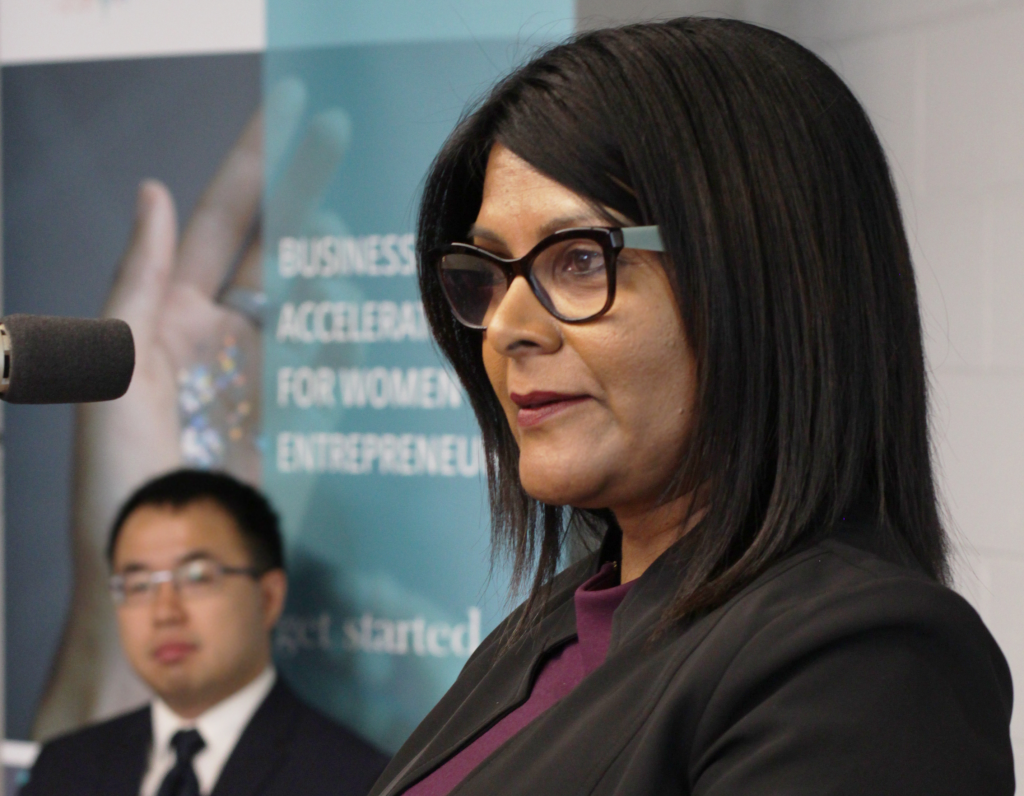
“You are risk takers, don’t listen to that stuff. You are risk takers because, quite frankly, you raise families, you have children, you move countries, you move cities, you have had enormous risk in your life!”
That message from Women on the Move’s CEO Heather Gamble—to ignore such axioms as “women can’t succeed in business because they don’t take risks”—had particular resonance for this audience of women business founders, some of whom had endured extreme risk, such as immigrating to Canada, heading single households, and surviving intimate partner violence. And the point was particularly impactful coming from an entrepreneur who reached $1 million in revenue just 18 months after launching her first startup.
As a revenue accelerator devoted to helping other women entrepreneurs reach the million-dollar milestone, Gamble is also a faculty mentor of The Refinery, a unique business growth program designed by women for women out of the Community Innovation Lab (iLab), a hub for entrepreneurs based one hour east of Toronto in Oshawa, Ont., where it serves the Durham Region.
Pramilla Ramdahani started the non-profit iLab as a way to tackle community social issues through an innovative lens in an ethnically diverse region with pockets hard-hit by job losses. Ramdahani, who has an MBA in community economic development and studied social entrepreneurship at Stanford University, left her own successful enterprise and bootstrapped iLab for three years before landing any kind of substantial funding. Talk about taking a risk. Eventually, the Ontario Trillium Foundation funded iLab’s most in-demand seminar, which morphed into The Refinery and will support 1,335 women through 2020.
Ramdahani says she started The Refinery after noticing two needs in the region: entrepreneurial training for women and assistance for marginalized women. After seeking feedback from the community through roundtable events, Ramdahani realized that women wanted a founder’s program created and staffed by women, to serve women. Women said they felt safer in smaller rooms with doors rather than one large open hall. They also said they have different and more open conversations when the instructors are female. Plus, they like to support each other. According to Brenna Ireland, director of operations for iLab, the women wanted a program to strengthen “business and personal ties to better the community, not just compete against each other.”
So, no, a traditional male-led accelerator would not do.
At the earliest stages, LiisBeth founder Petra Kassun-Mutch designed a curriculum for women-only programs that helped infuse feminist entrepreneurial values throughout iLab’s work—business counselling and training, building opportunities and networks, mentoring, and widening access to capital. (Researchers Barbara Orser and Catherine Elliott define feminist entrepreneurship as “a mechanism to create economic self-sufficiency and equity-based outcomes for women, girls, and other gender-oppressed communities.”) All entrepreneurs at iLab are coached with the end goal of achieving autonomy, and by extension, strengthening their community with hiring and spin-off economic activity from new ventures.
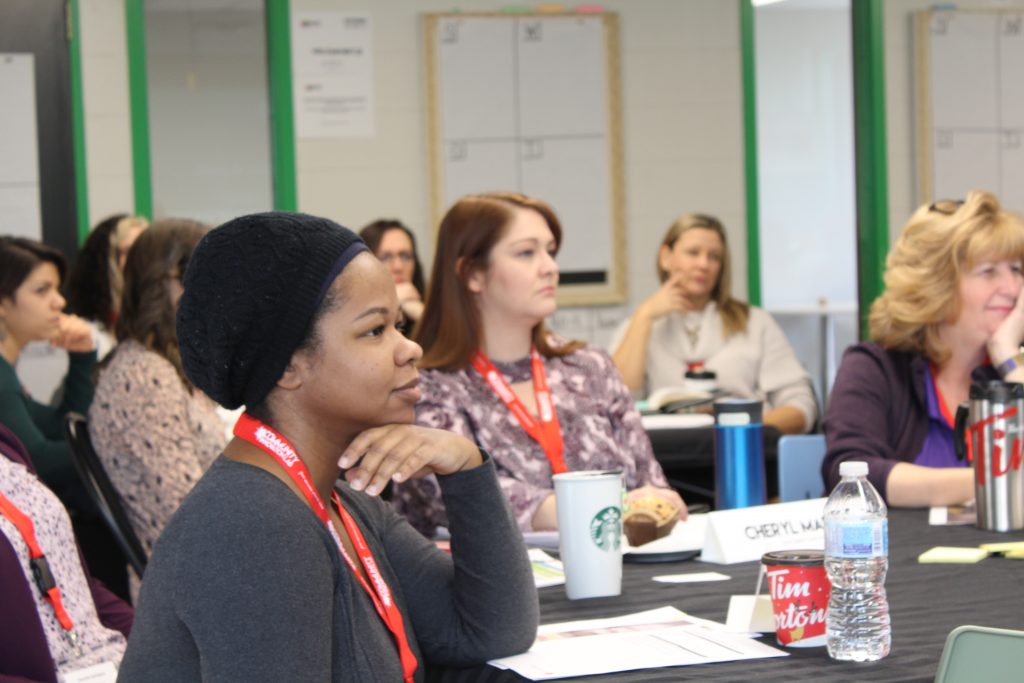
The Refinery includes a three-day boot camp, a year of intensive training delivered online and at the iLab centre, optional seminars on such topics as social media marketing, and opportunities to receive year-long mentoring from an established entrepreneur. Women learn how to access capital, build strong teams, scale processes, and generate sales.
The Refinery supports entrepreneurs working in a variety of sectors including business services, media, wellness and coaching, automotive sector, food, gift products, and human resources (note it’s not just tech). Women are guided to discover their own strengths and ideas, rather than the staff deciding which businesses would be best for them. According to Ramdahani, The Refinery is about “integrating empathy, social justice, and user-led techniques.”
The women-centric support and camaraderie is particularly important for abuse survivors, who face additional challenges when starting a business. According to the Institute for Women’s Policy Research in the U.S., survivors may have endured years of economic abuse, including tactics that damage their credit, deplete their resources, and prevent them from completing education and training. They may face ongoing threats of violence even after leaving an abuser, as well as legal issues and long-term mental and physical effects of trauma. Survivors may also have spotty employment records. Child care is often difficult to arrange after years of social isolation. And while all entrepreneurs may struggle with confidence, survivors must overcome low self-esteem brought on by years of abuse. They may also fear publicity or the idea of bringing their business online given that abusers often continue stalking and harassing their victims, in person and online. To top it off, survivors likely live under the poverty line and struggle to pay for food, shelter, utilities, and transportation expenses, leaving little to bootstrap a new business.
But the same policy research group also notes that survivors have strengths and resilience that may serve them well in entrepreneurship. The reality of managing a relationship with an abusive partner may require the same skills exhibited by the most successful CEOs: calculated risk-taking, thoughtful action, tough-mindedness, the ability to read people, problem solving, and determination.
In Oshawa, where iLab is based, domestic violence calls to police increased by 15 percent between 2013 and 2017, but the actual rate is much higher, as 70 percent of spousal violence is not reported to the police, according to the Canadian Women’s Foundation.
One survivor in The Refinery program (she asked to remain anonymous), who started a new business service while caring for elderly relatives, says she still suffers side effects from an earlier abusive relationship and has been grappling with relocation. She received much-needed sales, marketing, and financial training from The Refinery, but it was the all-female setting that was most critical. “It provides a safe spot,” she said. “Because after you’ve been victimized, you’re vulnerable and your confidence is shot. And so, any time a man is in the room, it’s a different dynamic than when you’re surrounded by women.”
She recommends The Refinery to “anybody that is looking to flesh out their business, anybody looking to ramp up their business, and who needs to build up a network of people. It certainly gives you all the supports that you need.”
The Refinery and iLab strive to create a safe space for all by requiring instructors to undergo police checks, as well as privacy and sensitivity training. The board of directors and staff strive to be as diverse as those they serve.
And here’s another appealing aspect for marginalized women: thanks to funding from Trillium, all fees are waived. Even optional seminars can be subsidized for those who need financial assistance. To help fund their startups, iLab partnered with the Business Development Bank of Canada (BDC) to widen the eligibility criteria for funding to help women entrepreneurs. Ramdahani also hopes to start a micro-lending circle at iLab to help women who don’t qualify for funding through banks, the BDC partnership, venture capitalists, or angel funding.
Based on the success of The Refinery, iLab looked at other gaps in community services and launched entrepreneurial programming for additional under-represented groups. ILab started incubators for at-risk youth entrepreneurs called NEET (not in education, employment or training), Spice (seniorpreneurs who are 55 and up), and the Social Enterprises Accelerator that helps social entrepreneurs grow to the next level. Said Ramdahani, “If you cannot find employment, why not create your own business? That’s the pathway we see that participants can use to alleviate poverty.”
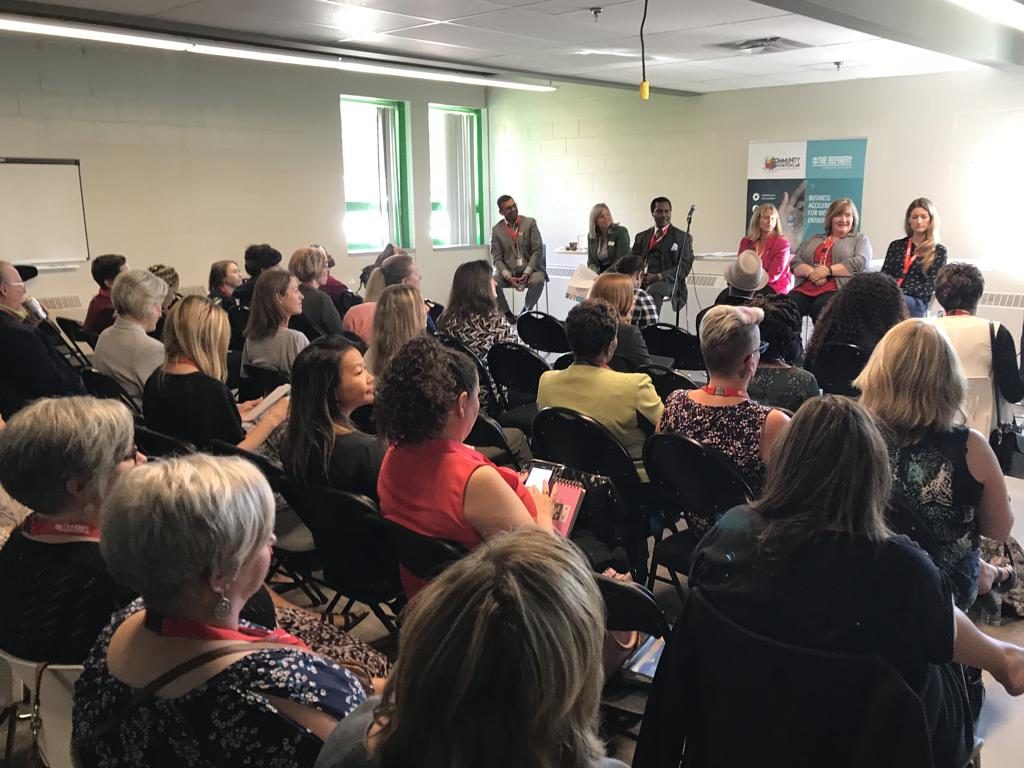
ILab also offers co-working spaces and rooms to rent for events and meetings—at a fraction of typical costs. Staff are quick to answer questions and find extra resources to accommodate attendees’ personal circumstances. And in order to create a community for entrepreneurs to grow and apply what they’ve learned, alumni from all streams are invited to join a Facebook group once they complete a program.
Elsii Faria, of The Hive Centre Bee and Bee, entered iLab’s social entrepreneur program to get much-needed support in a variety of areas. The business she runs with her husband offers overnight accommodation via a retreat centre that hosts nature, creativity, wellness, and spiritual events, as well as marketing and web design, and a platform called 1Community1 focused on community engagement. While building the business, Faria faced a life-threatening illness, took on a new mortgage for the bed and breakfast and office space, as well as cared for her one-year-old child. Faria says connecting with other social entrepreneurs at iLab gave her “really valuable support from other businesses with similar objectives.” It also introduced her to key partners such as Bear Standing Tall, their first Indigenous retreat leader. She had an arts education but needed to build up business skills. ILab helped her improve her sales skills and understand their business model. The business recently landed a grant that allows them to partner with Durham College to continue developing their 1Community1 platform.
Yet, for all of iLab’s success helping others, it has yet to receive solid funding support from any level of government—municipal, provincial or federal. Ramdahani is frustrated that governments favour investing in tech-based entrepreneurs and large urban-based non-profits. She is pleased that the Ontario Inclusive Innovation Action Strategy, released in June 2019, expands the government’s innovation definition to include “processes that are not tech-based.” But she points out that the strategy will only support women entrepreneurs at the high-growth stage only. “There is no funding for women who are marginalized, and who have just started a business, or have been in business for under three years,” Ramdahani said. Early-stage women founders often find doors for traditional loans closed. Without investment and cash flow to conduct business, Ramdahani wonders, How can they grow?
The federal government’s Women Entrepreneurship Strategy (WES) has added millions to support women, including new funding for enterprises in the high-growth stage, organizations that help grow women’s businesses, and research hubs. Currently, there is a federally funded women’s business development centre in every province and territory except the Northwest Territories. Provincially, the non-profit Paro Centre for Women’s Enterprise supports women-owned businesses and community economic development in northern, eastern, and central Ontario, excluding the Greater Toronto Area, through federal and Ontario Trillium Foundation funding.
In the U.S., the Small Business Administration (SBA) partners with non-profit organizations to fund and oversee 113 Women’s Business Centres. The centres offer entrepreneurs and small business owners free counselling and free-to-low-cost training. Men can receive services through these centres as well.
American women entrepreneurs are encouraged to register with the SBA for a Women-Owned Small Business or Economically Disadvantaged Women-Owned Small Business Certificate. This qualifies them to bid on contracts with the federal government to supply products and services. During 2017, $20.8 billion in contracts were won by women-owned small businesses. The U.S. federal government strives to award five percent of their supplier contracts to women-owned small businesses.
Like iLab’s innovative programming, these are ideas we can build on. ILab involves participants in curriculum and space design, “rather than building something and inviting them,” said Ramdahani.
Something for funders to chew on.
Did you enjoy this article? Learn something of value? We are a 100% reader-supported media enterprise.And the ONLY feminist media outlet to focus on entrepreneurship and innovation. Please consider supporting us with a monthly donation so we continue to support entrepreneurial feminists and share their stories, critiques and experiences. [direct-stripe value=”ds1554685140411″]. You can also contribute a one time donation by going here: https://www.liisbeth.com/support-the-mission/

This article was generously sponsored by Startup Here Toronto.
Related Stories
https://www.liisbeth.com/2019/06/25/gaslighting-the-silent-killer-of-womens-startups/
https://www.liisbeth.com/2018/08/07/start-up-incubators-are-failing-women-entrepreneurs-so-lets-fix-it/
The post Risky Business? Maybe Not appeared first on LiisBeth.
]]>The post Feminism: A Key Idea for Business and Society appeared first on LiisBeth.
]]>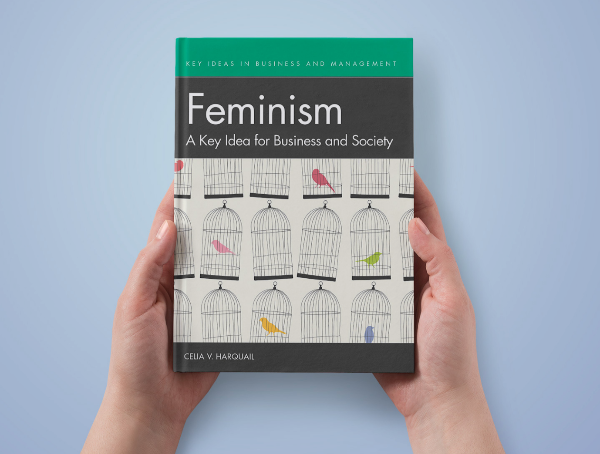
The opportunity to review CV Harquail’s new book was not one that I was about to take on lightly. I waited. I was not about to let distractions of an academic semester interfere with this anticipated good read. My hunch was that this was a book that I would appreciate more with time to reflect on the lessons learned. Feminism: A Key Idea for Business and Society was worth the wait.
In the quiet of a lakeside cottage, I began to read. Then I began to write. My copy is now littered with notations, highlighted sentences and questions that I will savour in hindsight. Like a timestamp of feminist endurance, the last time that I marked a document this same way was when I digested the 1988 Proceedings of Canada’s first “Women in Management” conference. Once again, there was much to absorb!
Acknowledging unrecognized feminist thought leaders and contemporary writers, this book offers readers a compendium of well-researched topics and convincing arguments about why feminism, equality, and capitalism must be companions:
“Once you learn to look at the business world through a feminist lens, everything you think you should do and that you might do to grow your people and your business will change. You’ll never be able to un-see oppression, and you’ll never again be able to accept the status quo as ‘good enough,’ much less as ‘good,’ period. You’ll no longer feel tempted to sit back and let others take up the challenge of advocating for justice, or leave it to others to envision and lead us towards a future where everyone flourishes.”
Harquail’s labour of love has moved feminism from the dimly lit sidelines of management theory to the centre of leadership practice. How far we have travelled. I could not help but reflect on being told during my doctoral studies, “It’s fine to focus on women entrepreneurs, but feminism has no place in management research.”
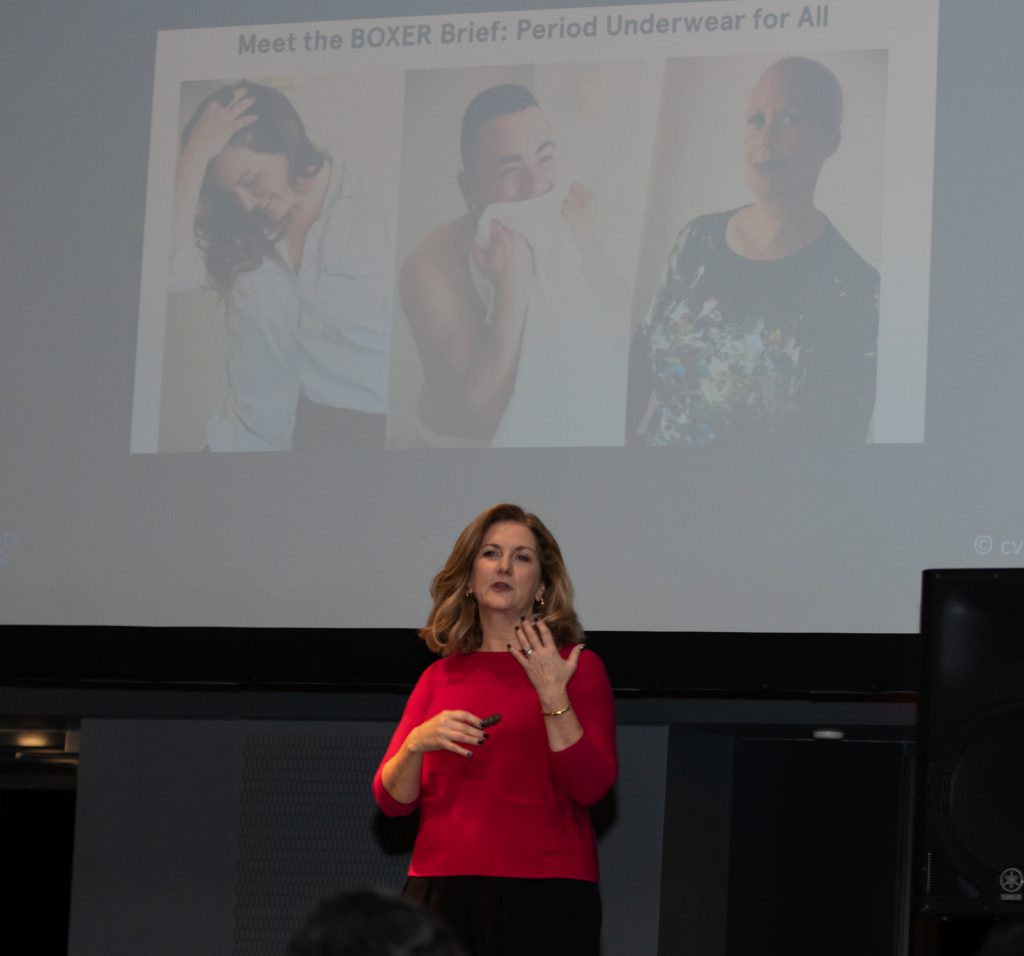
LiisBeth readers may be surprised to learn the degree to which feminism, feminist theory, and feminists impact our lives. While acknowledging that unconscious biases are ever present, Harquail led me through different perspectives that seek to “un-see” oppression, shining spotlights on alternative feminist perspectives and explaining what feminism has done and can do for business. I felt that her ideas respect the unrecognized contributions of countless feminists who work, every day, for equality within large and small organizations. And like a well-trained scholar, Harquail took care to honour feminist thought leaders and researchers who paved the way for many contemporary management practices.
Unearned privilege, earned expertise, flourishing, kyriarchy, and her five principles of feminism (equality, agency, whole humanness, interdependence, and generativity) are explained—ideas that strengthen management, entrepreneurship, and the care economy. I thought that each was brought into perspective through multiple truths, feminist standpoints, and contradictions.
This left me pondering about how I can better reflect feminist values in my own work, and how entrepreneurship research still has much to do to lift up the voices of the marginalized.
This book will be of interest to all aspiring business and entrepreneurship students, executive teams, and changemakers. An opinionated book that is jam-packed with practical ideas about why feminism needs to be taken seriously by the business world, you’ll learn about different perspectives that will help you to position your own thinking in the workplace. Collectively, the conversation about feminism and business has moved to a higher level. This includes a leap closer to understanding how businesses can better balance profit-seeking behaviour with equality and justice for all.
Harquail invites readers to walk beside her as she explains foundational and emerging concepts of contemporary feminism. By the end of the book, I felt a renewed sense of confidence about my understanding of the tenets of feminist leadership.
This primer on feminist leadership provides food for thought by a master chef. As a white, privileged scholar, consultant, and mother who has written about entrepreneurial feminism, gender, and management for over 30 years, I consider this work among my best management reads to date. Thank you CV Harquail!
About the reviewer: Dr. Barbara Orser is the Co-author, Feminine Capital. Unlocking the Power of Women Entrepreneurs (Stanford University Press, 2015 with Catherine Elliott), and a full/Deloitte Professor, Telfer School of Management, University of Ottawa, Canada.
Did you enjoy this review? We are a 100% reader supported media enterprise. Please consider becoming a monthly subscriber donor. The world needs more feminist media! [direct-stripe value=”ds1554685140411″]
Related Reading
https://www.liisbeth.com/2017/08/17/uber-feminist-enterprise/
https://www.liisbeth.com/2018/03/15/another-brick-in-the-wall/
The post Feminism: A Key Idea for Business and Society appeared first on LiisBeth.
]]>The post What the EFF? Top Six Takeaways from the 2018 Entrepreneurial Feminist Forum appeared first on LiisBeth.
]]>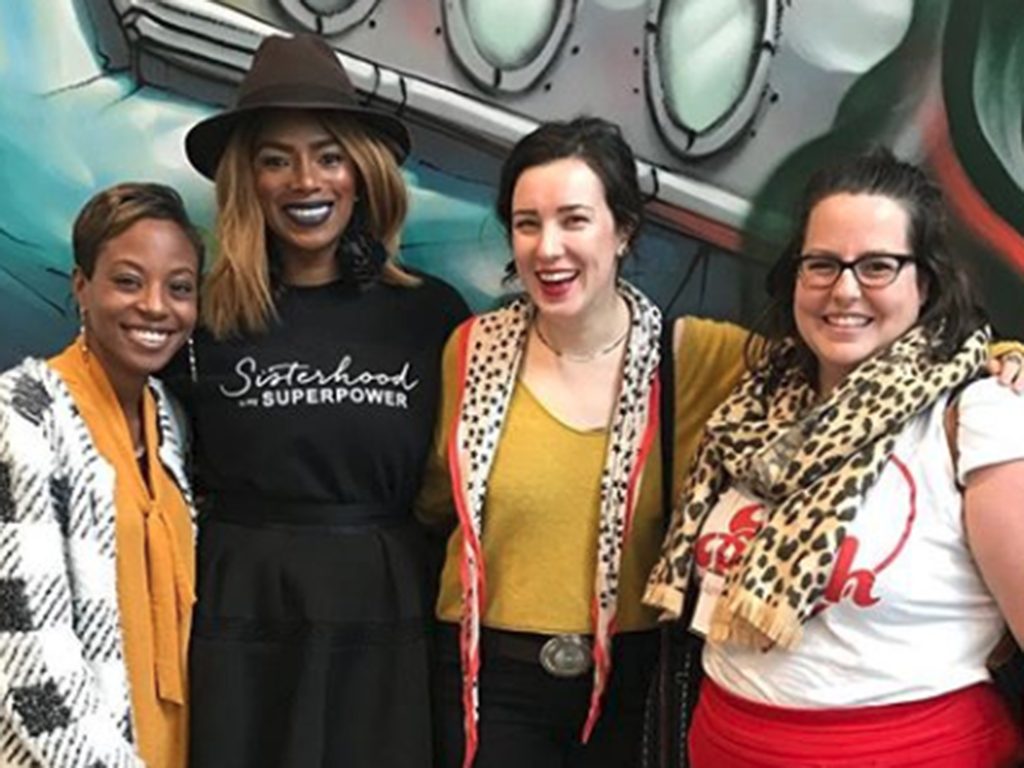
On December 2 and 3, LiisBeth co-sponsored the second Entrepreneurial Feminist Forum (EFF) in downtown Toronto. The annual entrepreneurship conference brought together the growing community of feminist entrepreneurs to learn and share experiences around feminist business practice.
This year, the message was clear: connect and take action.
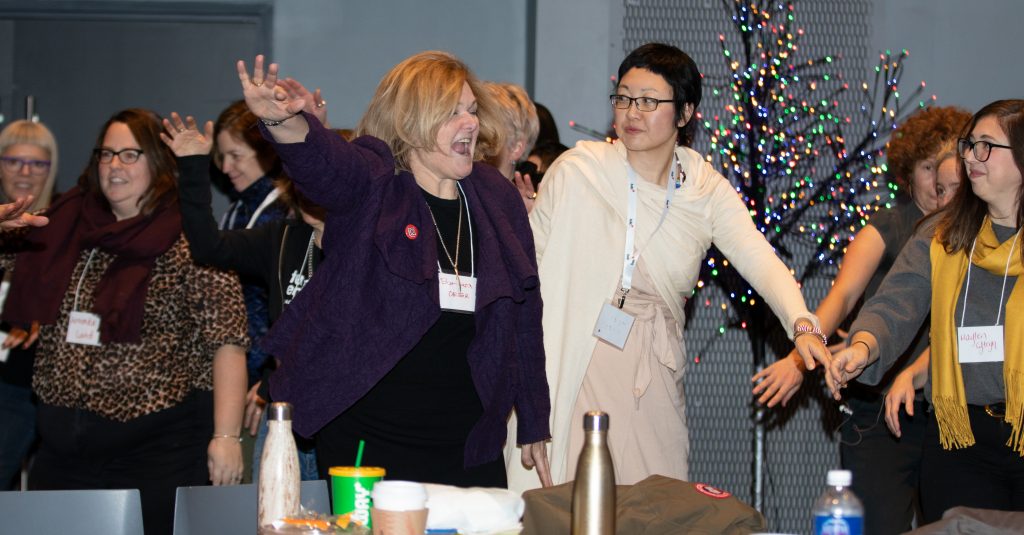
We’ll post a full roundup next year but here is a list of six action items to consider incorporating into your 2019 resolutions.
1. Type “Indigenomics” into a document. When the red squiggly line appears indicating a spell-check error, right-click then press “add word,” because the relatively new term is picking up speed in Canada’s lexicon. “When you talk about water and trees you talk about resources. When we talk about water and trees we talk about relatives.” – Carol Anne Hilton, Indigenomics By Design: The Rise of Indigenous Economic Empowerment.
2. Visit Kelly Diels for feminist marketing tools, tips, and resources. If you missed her at the EFF 2018, you missed out, but fear not. Diels offers workshops and coaching sessions where you can develop (among other things) a social media strategy and system based on her Little Birds and Layer Cakes, Social Media Workbook. “If you hate marketing, it means you have a sense of justice.” – Kelly Diels, Feminist Marketing for an Emerging, More Inclusive Economy.
3. Build our communities. CV Harquail reminds us that we can build our collective path to the entrepreneurial feminist future by standing on and grounding ourselves in each other’s work. Every presenter, facilitator, and participant is doing work that we can build on — so let’s follow each other on Twitter, connect on LinkedIn, refer to each other’s work, and celebrate our growing community. View the full list of presenters here.
4, Unplug and Read (okay two actions) Sarah Selecky’s new novel: Radiant Shimmering Light. It’s the holidays so not everything has to be about work. However, you may find your own takeaways in Selecky’s novel about female friendship, business, and online marketing that skillfully balances satire, humour, and truth. Selecky also credits Kelly Diels in her acknowledgments as the person who coined the term Female Lifestyle Empowerment Brand and met Diels at the EFF, so maybe it is about networking.
5. Decolonize your mind: Decolonization work begins with taking the time to critically examine how colonization has influenced your personal world view and sense of self. Sit down. Make a list. Check it twice. Then consider re-embracing cultural practices, thinking, beliefs, and values that are a part of who you are and where you came from, but were systemically dissed by the dominant culture. “If we want diversity and inclusion, we have to decolonize design so that the practice itself stops traumatizing our diverse students and professors.” – Dr. Dori Tunstall, Whiteness without White Supremacy: Generating New Models of Whiteness
6. Sign up for LiisBeth’s newsletter here and receive rants, downloadables, recommended readings, profiles, feminist freebies! and stay informed about LiFE (LiisBeth’s Incubator for Feminist Entrepreneurship)–a membership only feminist business practice “school” and learning commons.
In addition to the action items above, what else did EFF participants get from the conference? The five most meaningful leaves on the wall of inspiration sum it up best:
Rooted in values that take good care of people and planet, feminist entrepreneurs are building justice into products and services, operating models, and relationships. In the process, we are building collective power to change the economy.
Join us.
The post What the EFF? Top Six Takeaways from the 2018 Entrepreneurial Feminist Forum appeared first on LiisBeth.
]]>